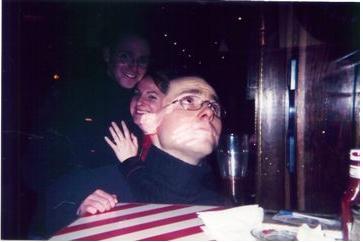Group 1 かかれます (kakaremasu)
Group 2 ほめられます (homeraremasu)
Group 3 されます (saremasu)
こられます (koraremasu)
Passive form is when the verb is done TO the subject rather than BY the subject. Consider the following:
1. My friend broke my ipod.
友達が僕のIpodを壊しました。
{tomodachi ga boku no Ipod wo kowashimashita.}
2. I had my ipod broken by my brother.
僕は友達にIpodを壊されました。
{boku ha tomodachi ni Ipod wo kowasaremashita.}
In the first sentence,
-friend[subject] myIpod broke-whereas in the second sentence,
-me[subject] に [ni - particle to show direction] =
-to me[subject] friend [did the action of] broke myIpod
As there are always exceptions to any grammatical structure I suppose it is rather important to note that you shouldn't use this form if someone offers a gift-like action to you (the subject). In such cases you should use the ~て もらいます form.
ิ
僕は友達にIpodを修理してもらいました。
I had my Ipod repaired by my brother.
{boku ha tomodachi ni Ipod wo shuuri shite moraimashita.}
As always, I suggest you work out some sentences that amuse your, or pick them up from alc.co.jp like I usually do and memorize them to help you solidify the pattern in your head. Nobody needs to memorize grammar anyways. However, its good to read it over on occasion so you have some clue as to why things are set up the way they are.
私は怪物に足首を噛まれました。
I had my ankle bitten by the monster.
{watashi ha kaibutsu ni ashikubi wo kamaremashita.}
Next time, I will go into considerably more useful passive patterns.
お酒は米から造られます。
Sake is made from rice.
{o sake ha kome kara tsukuraremasu.}

No comments:
Post a Comment